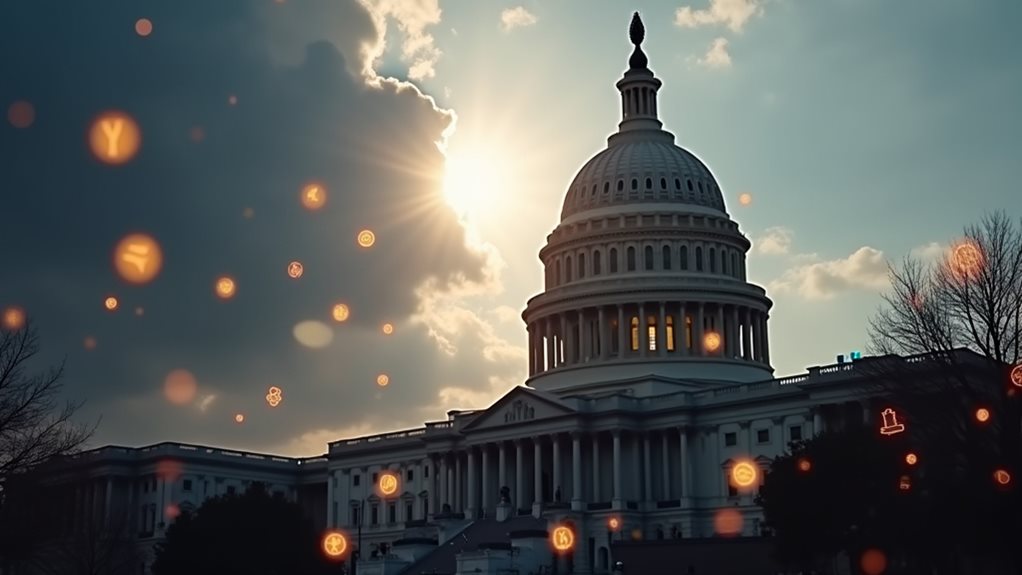Trump strong-armed 11 House Republicans into line to save the flailing GENIUS Act, turning what looked like a dead-on-arrival stablecoin bill into tomorrow’s must-watch vote at 12:20 PM. The former president held White House meetings, fired off social media commands, and got Speaker Mike Johnson to whip votes after the legislation crashed in July. Republicans initially balked over missing crypto provisions, but Trump’s intervention flipped the script on this federal stablecoin framework that could reshape digital asset regulation entirely.

Trump swooped in to save the day—or at least save the GENIUS Act from legislative limbo. The former president secured backing from 11 key House Republicans to advance the stalled stablecoin legislation, breathing life into what looked like a dead-on-arrival bill.
After a failed procedural vote earlier in July had blocked progress, Trump held a White House meeting with lawmakers. He announced their commitment to vote in favor of moving the bill forward. Because apparently nothing gets done in Washington without a little arm-twisting from the top.
Trump didn’t stop there. He publicly ordered all Republican lawmakers to support the GENIUS Act through his social media posts, emphasizing urgency. He even involved House Speaker Mike Johnson by phone during discussions, reinforcing leadership support for quick action. When Trump wants something done, he makes sure everyone knows it.
The legislative calendar had been a mess. House leadership initially canceled votes, causing uncertainty. But with Trump’s backing secured, they resumed the schedule. The bill was rescheduled for a decisive vote on July 15 at 12:20 PM, then potentially July 16 or 17 depending on House agendas. House Majority Leader Steve Scalise confirmed the next vote date after Trump’s rallying efforts.
Here’s the thing about the GENIUS Act—it actually matters. The bill proposes a federal regulatory framework specifically for dollar-pegged stablecoins, granting jurisdiction to the U.S. Treasury Department. It aims to foster innovation while enforcing accountability and consumer protections. Revolutionary stuff, apparently.
But not everyone was thrilled. Some Republican hard-liners opposed the Act because it lacks a ban on central bank digital currency. Representative Marjorie Taylor Greene publicly criticized the bill for potentially enabling government control over digital currencies. At least 13 Republicans reportedly voted against initially considering the crypto bills.
Democrats largely support stablecoin regulation but voiced reservations about conflicts of interest related to Trump’s crypto positions. Because heaven forbid politics get messy. The GENIUS Act would allow private companies to issue stablecoins under federal oversight, fundamentally changing how these digital assets are regulated in the United States. The stablecoin legislation includes a provision barring Congress members from profiting off stablecoins, excluding the president.
The bill previously passed the Senate with bipartisan support, strengthening its House chances. Trump’s intervention helped overcome Republican opposition, proving once again that sometimes you need a bulldozer to move legislation forward. The timing comes as the SEC recently clarified that fully-backed stablecoins are not securities, providing additional regulatory clarity for the crypto industry.









